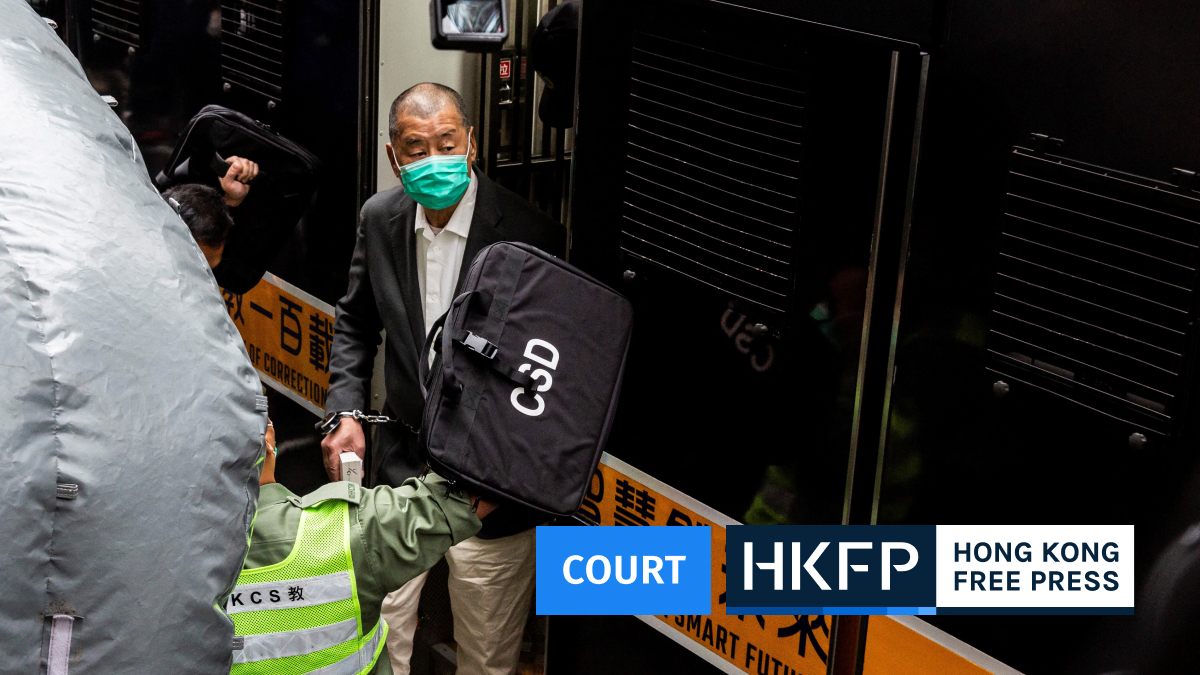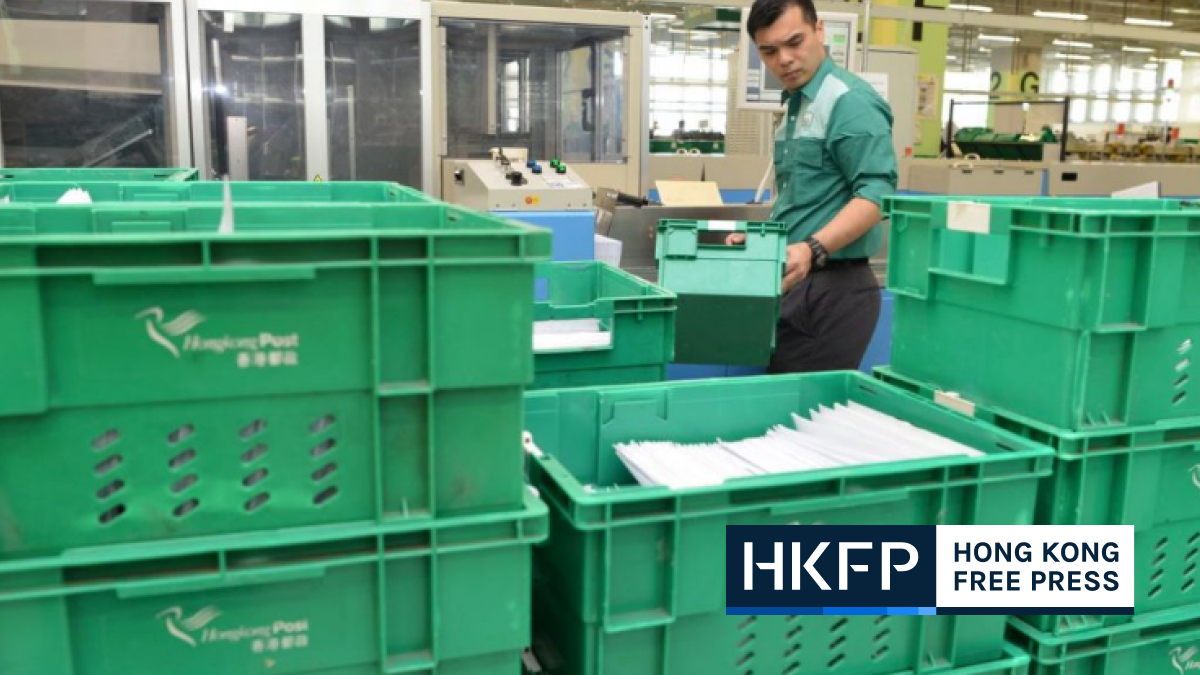By Annika Yan
Many may know Grandpa Chan as the co-founder of the Protect Our Kids Campaign and a frequent figure in the 2019 anti-extradition bill protests. But less is known about his role as a village representative who has for years been fighting a major government housing project.
Since the 1980s Chan Ki-kau has been farming in the secluded settlement of Ma Shi Po in the northeastern New Territories, where over two hundred other villagers also lived and farmed before the government announced a development plan for the district – designated the North East New Territories New Development Areas.

Now the development is coming closer and closer. During an interview with HKFP, Grandpa Chan pointed at homes just a few minutes’ walk away from the village. “Even before Ma Shi Po, I was already farming in Fanling, but my old farmland was developed into these high-rise buildings.”
A narrow pavement leads to the entrance of Ma Shi Po Village, where handwritten banners are hung: “Collusion between government and property developer, oppressing villagers,” “‘Villagers have not moved out, roads shall not be blocked.”
Some villagers were hanging up a bedsheet displaying new slogans on the day of the interview, which took place a week after the sudden eviction of several households.
Buying up land
Shortly after the then-Chief Executive Tung Chee-hwa announced plans to develop Fanling North in 1998, property developer Henderson Investment Limited began buying agricultural land from owners who for decades had leased it to the villagers.

“Henderson did it through ‘sampan companies’ – its subsidiaries and affiliated companies – at first. Only after the act was exposed did Henderson admit that it was its doing,” Chan recalled. Best Galaxy Limited, Charter Rank Limited and Joy Cultivation Company Limited are among the “sampan companies” that have purchased land.
As a result, farmers in Ma Shi Po have faced impending eviction since as far back as the early 2000s. In 2013 the Executive Council approved the North East New Territories New Development Areas plan, speeding up the process of land purchase and subsequent eviction of villagers.
However, the development plan also promised that farmers could relocate to Kwu Tung to continue farming. In 2019 the Development Bureau set out further relocation arrangements, including the Agricultural Land Rehabilitation Scheme, which would allow villagers to choose from a list of sites if they wished to continue farming.
Unclear relocation
Chan, however, said the relocation arrangements lacked clarity and transparency. “Originally, they claimed that they would allocate the new farmland according to the move-out order. Several households were arranged to move to new farmland in Wah Shan. Somehow, in the end, it was not those households that got relocated, but another few.”
There was never any consultation with villagers, Chan said. “It is all a mess.”

Therefore, since 2000, village representatives like Grandpa Chan and Mr Kwan, who has lived in the village with his family for over 60 years, have taken it on themselves to try to stop the development plans. They filed judicial reviews and took part in negotiations with the Lands Department. But they said the department failed to take written minutes of meeting, making it hard to hold officials to their promises.
As of now, only about a dozen families still live in the village. Apart from the few who have relocated to other farmland under government arrangements, some have moved to private properties or public housing. “For decades, the village was so lively and full of people,’ Chan recalled.
After years of struggle against the development with little to show for it, Chan said they no longer seek to remain in the village. “We only ask for ‘settlement before eviction’,” he said, adding that the government was reluctant to comply with such a request.
Hong Kong’s government is under pressure to find more land for public and private homes, as private property prices soar and waiting lists for subsidised government rental housing increase to almost six years.
Sudden eviction
On the morning of May 28 more than a hundred Lands Department staff members and police arrived at Ma Shi Po to evict villagers, house after house. Chan and Kwan were among those whose houses were seized.

“‘I was following them when they broke into Grandpa Chan’s house, as well as the houses and farmlands of three other families,” said Kwan. “Then, without warning, they pivoted towards one of my two houses, where my brother and my 90-year-old mother, both mentally incapacitated, lived.”
Seeing a team of Lands Department officers fast approaching their house, Kwan’s brother, who was alone in the house, locked the front door and fled. Kwan said the officers then broke in, tossing out all the furniture and belongings. “Ironically, they only kept my documents that are related to the eviction neatly in a box. The rest of the stuff – they just threw it out of the house until a reporter questioned them.”
Electricity and water was also cut off.
Kwan said the homes taken over on May 28 had all been occupied by village representatives, or villagers who had expressed opposition to the eviction.
’15 minutes to pack up’
On the door of each house is a Lands Department notice that the “occupation of unleased land” must cease by a certain date – April 1, 2021, in the case of the homes seized on May 28.

Kwan said the notices were posted in January this year but the Lands Department had not started the process of calculating compensation and measuring plots until April. He said officers arranged for him to submit relevant documents on June 1 or 2 yet his home was seized three days before then. “It’s just unreasonable,” Kwan said.
A villager surnamed Au whose home was seized on May 28 said he had been given 15 minutes to pack up everything and leave the house for good. “I was like, what could I even pack in 15 minutes?”
As in Kwan’s case, the compensation process has not been completed, although Au has received a relocation subsidy of HK$9,000. “We have been orally promised a housing unit under the Tenants Purchase Scheme opposite Fung Ying Seen Koon [temple] but it is not written down.”

Au, who in the past had suffered a stroke, said he suffered an “emotional breakdown” when the Lands Department officers entered his home. Like Grandpa Chan, he has lived in Ma Shi Po village for decades. Au acknowledged that it would be difficult to stop the evictions. “We’re not powerful enough to fight against the government. But we want a home, just like everyone else.”
Decades of activism
In front of the mostly empty mailboxes at the village entrance, Chan donned his signature red hat, with the words “Grandpa Chan Ma Shi Po Village” written on it. He said he had worn it on many occasions of activism.
“From the Ma Shi Po resistance to protests in 2019, I want people to know that we Ma Shi Po villagers don’t just fight for ourselves, but for social justice too. And I believe that when we the elderly need help, the young people will help us too.”

Stopping at the land where he used to farm, Chan said the demands of activism and consequent charges meant he has had no time for cultivation, and the land has dried out. On the wall of the tin house where he once lived, he wrote a new slogan in black ink: “Destroying homes before relocation, Lands Department hegemony is no different from the triads.”
Asked why he persists in activism despite his arrest in a 2019 protest, as well as the government’s insistence in developing the Northeast New Territories, Chan stopped to wipe a few tears away.
“Thirteen young people have been put in jail for protesting against the North East New Territories development plans. I owe it to them to keep fighting. I will never forget their sacrifice.” He said he suffers from PTSD following the protests in 2019 and sometimes has difficulty controlling his emotions.
But asked if he would keep a lower profile after the sudden eviction, he insisted: “There’s nothing much else to lose any more. I will not stop fighting.”
“Ma Shi Po village will disappear soon. All I hope is for the government to resettle the villagers and arrange for agricultural rehabilitation before eviction. We need to keep on making a living. We need to go on living.”
Support HKFP | Policies & Ethics | Error/typo? | Contact Us | Newsletter | Transparency & Annual Report | Apps
Help safeguard press freedom & keep HKFP free for all readers by supporting our team

LATEST FROM HKFP
HKFP has an impartial stance, transparent funding, and balanced coverage guided by an Ethics Code and Corrections Policy.
Support press freedom & help us surpass 1,000 monthly Patrons: 100% independent, governed by an ethics code & not-for-profit.










